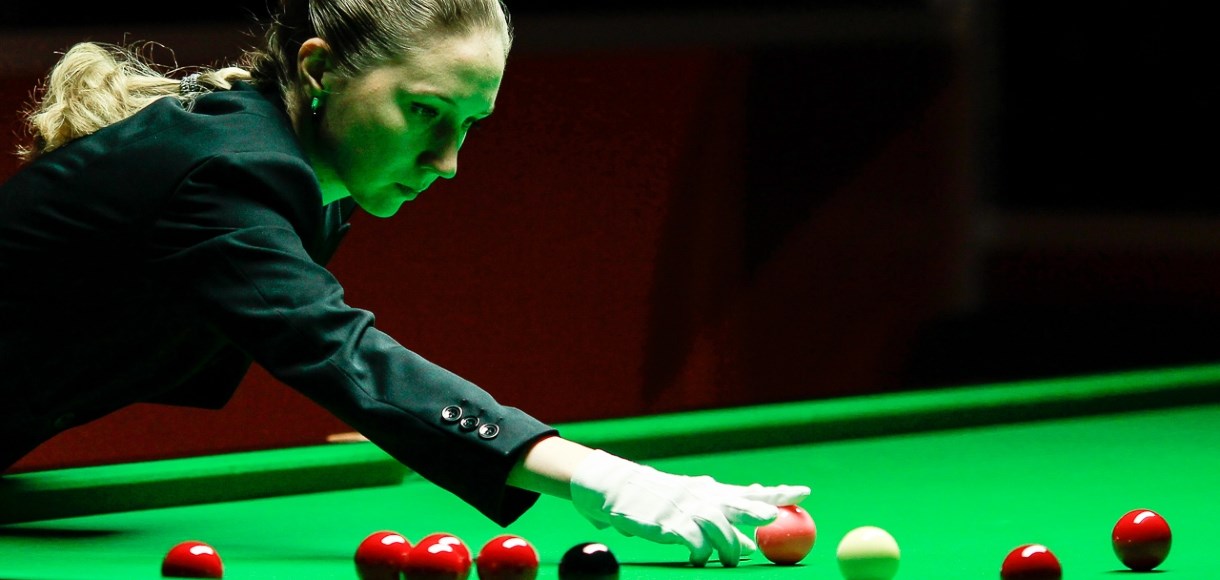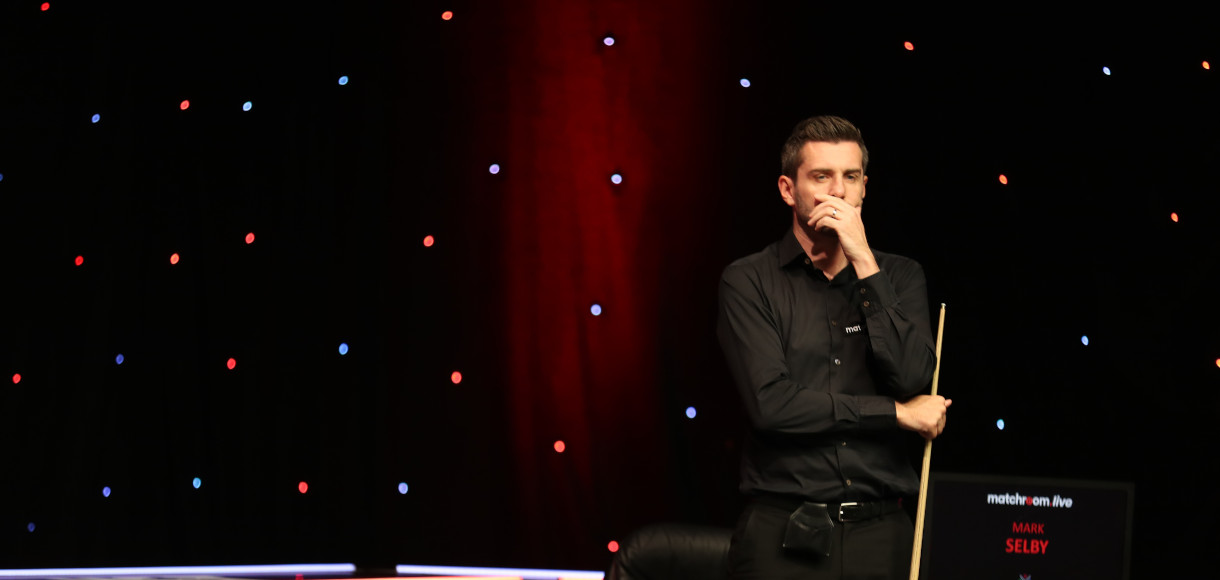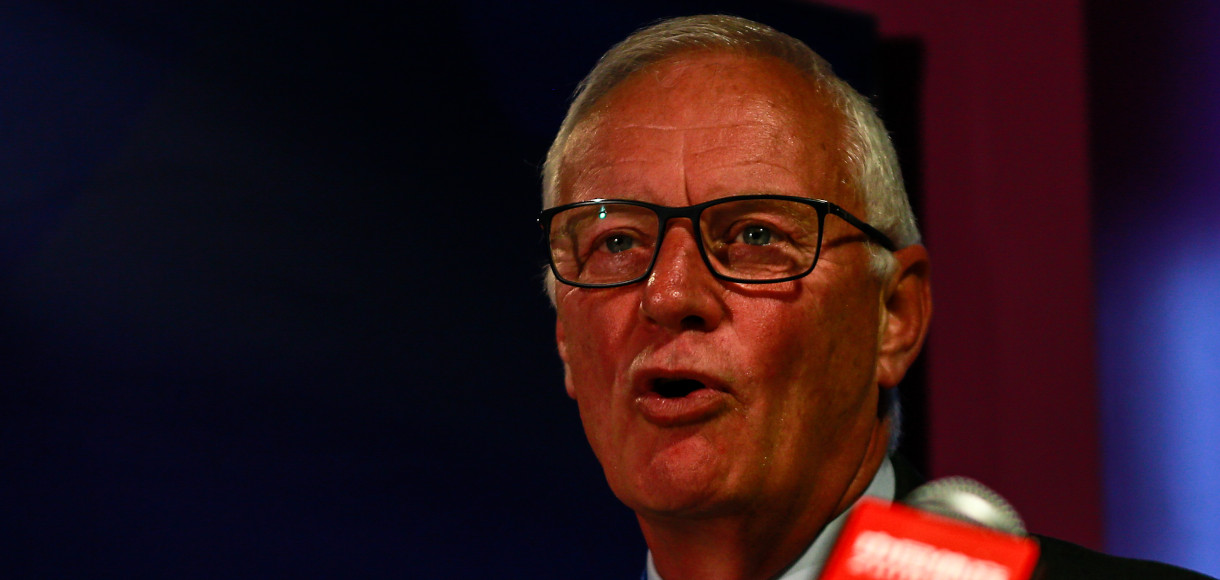What it's like to be a World Snooker referee

Greg Coniglio and Tatiana Woollaston reveal how they became snooker referees, the skills required and how they deal with the busy schedule.
Start naming the most important people in snooker.
First up would be the players. Then the ticket-buying supporters. You'd reference sponsors, broadcasters, Barry Hearn, Jason Ferguson and other key members of World Snooker.
Only after all of them and more, you might remember the referees.
"The sign of a top referee is one that doesn't get noticed," says Greg Coniglio, who has been officiating on the World Snooker tour since 2007.
"We don't get mentioned much - it's all about the players."
One of the reasons why referees are rarely in the limelight - in comparison, for example, to football - is that there is hardly ever any controversy surrounding them.
"I like it like that," says World Snooker chief Barry Hearn. "I'm a big fan of the situation in rugby where the referee's word is absolutely final and never questioned, because that in itself is an offence.
"Someone has to be in control otherwise you have anarchy."
"You have to be really confident in yourself," says Tatiana Woollaston, who has been a World Snooker referee since 2010.
"If players can see your weaknesses then they won't take you seriously. You have to be confident from start to finish."
If you don't take much notice, being a snooker referee may not seem the most difficult job. But it could be argued that, mentally, more is required of a referee than a player.
"You need to have 100 per cent concentration," says Woollaston. "Even when you think nothing can happen, you have to not get distracted, which is difficult in really long matches.
"Everyone else is emotional, but you have to concentrate. Even with the technology now available (replays and scoreboards, for example), you have to be ready for it to fail. If you are sure of yourself, the players respect you more.
"You need good stamina, too, because it's so many hours in a row on your feet."
That’s not easy to do, and is one of the reasons referees take huge pride in what they do.
Coniglio will fulfil a lifelong ambition when he takes charge of the 2019 Betway UK Championship final, his fourth major final and his first of the Triple Crown events.
"I know I'm ready," he says. "They wouldn't put me into it if they didn't think I was.
"The thing with me is I don't get nervous, so I can just look forward to it.
"I've loved snooker since I was probably eight or nine-years-old, watching Alex Higgins playing on the TV. This is another landmark, maybe ahead of the big one. The World Championship final is a huge aspiration now."
Officiating major finals is the result of endeavour, sacrifice and dedication over several years.
There are three classes of referees, with examinations required to move up each rung of the ladder.
That process was complex for Woollaston, who only discovered the game when the Belarus Snooker Championships took place in her home city, Minsk.
"I couldn't believe we even had snooker tables in Belarus," she says. "I knew I couldn't play, it was too hard, so I went to the club and they began to go through the rules with me.
"I started locally, and then they were short of referees in St Petersburg, which is close to Belarus, so I got invited to referee in the European Amateur Championships there. That's when it all started."
Once on the World Snooker circuit, referees are required to take charge of matches in China, Thailand and India, as well as various venues around the UK and Europe.
"All the referees are like a family," Woollaston says. "We stay together and we eat together.
"The players, most of the time, are on their own and don't have those strong friendships, so it's harder for them."
But throwing themselves into work is still the easiest way to pass the time while away from home.
"A week or two just flies by, particularly when we're doing lots of matches," she says. "We arrive at the venue about 45 minutes before the start of the match, check the table, check all the equipment and load the scoreboard.
"One of the biggest responsibilities is finding the players, knowing where they are at all times and telling them where to meet before the match."
Not every player is always co-operative.
Ronnie O'Sullivan will often get frustrated if he thinks that the game is moving too slowly, sometimes being heard asking referees to re-spot the balls quicker in the middle of a break, while players who prefer not to hang around the venue before a match are harder to locate.
Dealing with more difficult players successfully is a good way of a referee stamping their authority on a match, although Woollaston stresses no players are given preferential treatment.
"No," she says. "You see everybody as the same. Obviously if there is a really quick player you try to be at their speed, but if it is too quick for you then you have to do it your own way."
One person Tatiana never referees is world No. 39 Ben Woollaston, for one simple reason. They're married.
"I met Ben at the Paul Hunter Classic in 2010 in Germany," she says. "It was my first ever professional event as a referee. We got married the year after that."
That, presumably, was a big talking point on the circuit, but Woollaston says that the gossiping didn't last long.
"I think everybody's used to it now," she says. "They don't even comment on it.
"Obviously we have to sort childcare during tournaments and that sort of thing.
"The only funny thing that happens is that fans will come up to every female referee and say: 'Are you the one that's married to Ben?' And they're like: ‘No, that's not me' and they all get pointed in my direction.
"But if Ben's playing on the next table, I know he's so good at concentrating on his game that sometimes he won't even notice I'm there.
"In that moment, all I have is my two players and I'm responsible for them."
It's being able to remain that professional at all times that should mark referees out as far more important than they are generally considered.
Visit Betway's snooker betting page.




































